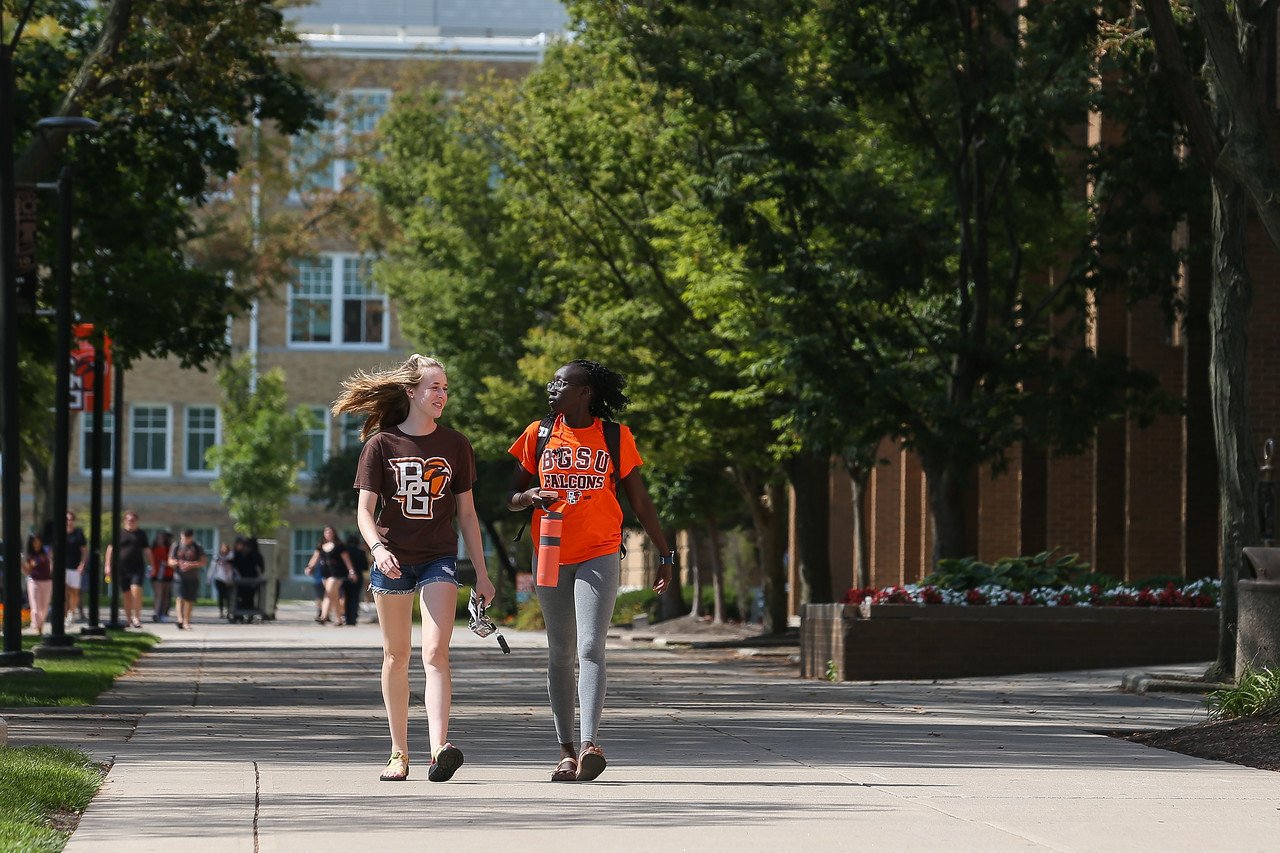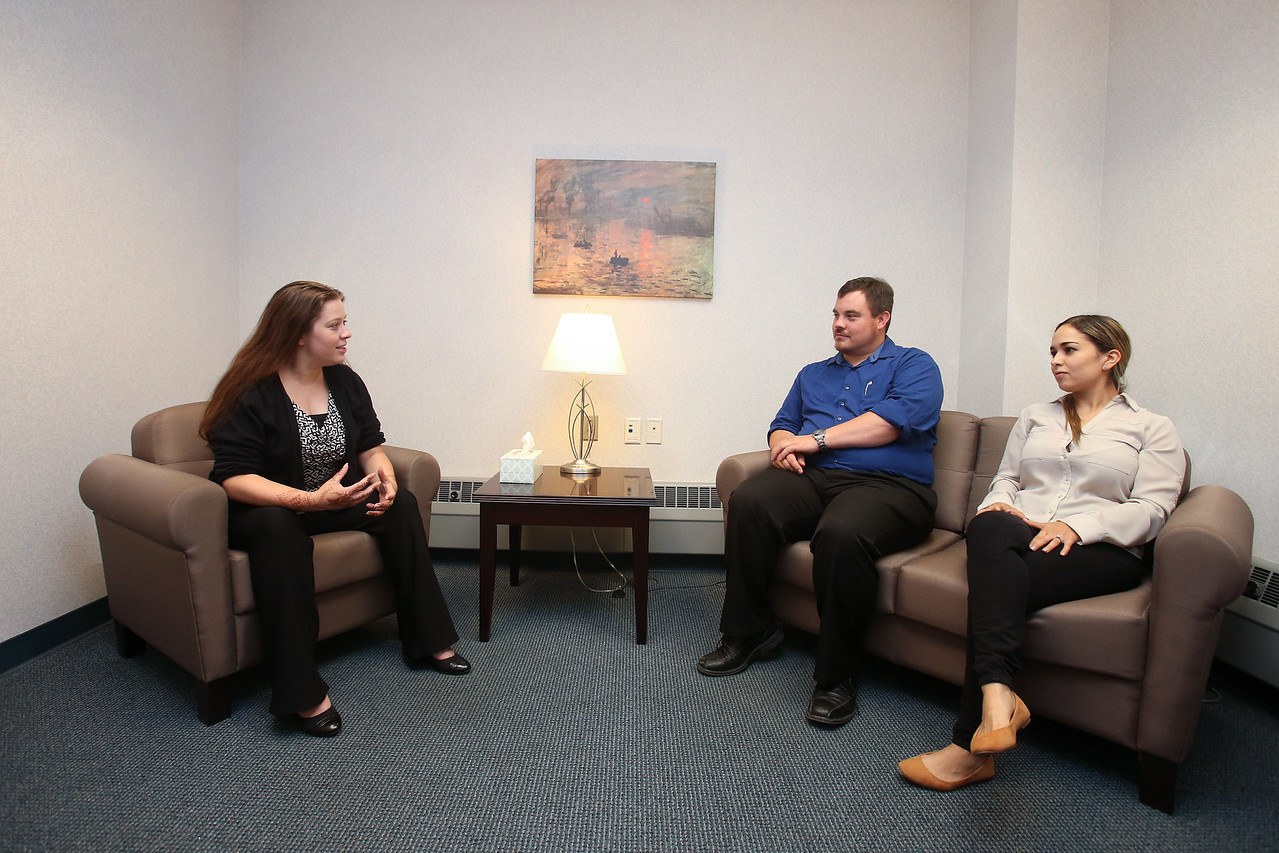
Pre-Mortuary Science
The BGSU pre-mortuary science track describes students who either plan to enter a mortuary science school after graduating from college or after completing the required credit hours for entrance.
Working in the funeral industry is often driven by the desire to help others in what has been described as a human service profession. The career is a blend of arts and sciences, with a need for sensitive communication and a high degree of emotional intelligence.
Mortuary science is offered as a bachelor’s degree at only 57 institutions in the country. Most programs admit transfer students for four semesters after students have completed their general education courses and the prerequisites.
When a student is pre-mortuary science, they are not only taking the classes required for admission to study mortuary science. Students may also complete a major in a specific subject matter area before taking the 12-month, 4-semester mortuary science program.
The human service profession
The American Board of Funeral Services Education sets the standards for the mortuary science qualification and accredits the schools.
Each state has different regulations governing the licensed profession of funeral director. Ohio, for example, requires a bachelor’s degree and a 12-month mortuary science qualification. A criminal background check and a two-year apprenticeship follow the time learning the specific skills of a funeral director. The final requirement is to sit for the International Conference of Funeral Service Examining Board’s National Board Examination (NBE), which comprises arts and sciences exam sections.
Once qualified, new mortuary science grads find only a tiny part of the average working day is occupied with preparing bodies for burial or cremation. The majority of a funeral director’s time is spent dealing with families and loved ones who have suffered a loss.
Future trends - Green funerals and personalization
The cremation of deceased people in the United States creates around 600 million pounds of CO2 every year. Less environmentally impactful burial methods are on the rise. Water cremation and alkaline hydrolysis, where the body is liquefied and the bones are crushed into ashes, are more popular than ever.
Memorials and services are changing to meet consumer demand for personalization, helping offset some of the losses occurring due to the growing trend towards cremation in the U.S. death care market.
The death care profession provides a bright and steady beacon at a time of loss and grief.
Career - what can you do with a pre-professional mortuary science degree?
A licensed death care professional enters a steady profession, typically with more job openings than qualified candidates. Those able to relocate will have a wider choice of positions.
Recent consolidation within the funeral industry has brought innovation, technology and creative marketing to a growing industry. Projections put the total funeral services industry, including pet burials and services, at $68 billion by 2023, growing at a rate of over 4% during 2017-2023.
Career paths
- Funeral Home Manager
- Mortician
- Undertaker
- Funeral Arranger
- Funeral Director
- Embalmer
- Embalmer Apprentice
Quick Facts from the Bureau of Labor Statistics
Curriculum
Prerequisites for the bachelor in Mortuary Science include basic science, business and communications subjects. These are supplemented with psychology and communication skills. Finally, anatomy and physiology subjects are required. Chemistry and biology are recommended but not required.
The mortuary science curriculum covers the entire funeral service process, from the first call with a bereaved client to the ethical, legal and psychological responsibilities a funeral director bears.
Preparation of bodies for display or final disposition is a necessary but small part of the curriculum. Topics also cover disaster management, the psychology of grief, and restorative arts.
Students should be aware that a series of vaccinations will be required before entering a mortuary science program. Therefore, students will need to plan for admission several months in advance.
For more information, visit the American Board of Funeral Service Education or the Cincinnati College of Mortuary Science websites.

Sample courses
- Psychology
- Interpersonal Communication
- Chemistry
- Anatomy and Physiology
- Biochemistry
- Sociology
- Algebra
- Public Speaking
Natural & Health Science Learning Community
Students enrolled in health science-centric majors at BGSU may enter the Natural and Health Science Residential Community (NHSRC), an on-campus learning community. The extra academic support received within the community is a significant advantage for gaining admission to health-related and science-related programs with competitive entrance requirements.
The Pre-Professional Mortuary Science Track is one of the Pre-Professional Programs supported by the BGSU College of Arts and Sciences.
Accreditation
Bowling Green State University [BGSU] is accredited by the Higher Learning Commission. BGSU has been accredited by the Higher Learning Commission since 01/01/1916. The most recent reaffirmation of accreditation was received in 2022-2023, with our next reaffirmation of accreditation scheduled for 2032-2033. Questions should be directed to the Office of Institutional Effectiveness.
Request Information
Updated: 09/11/2024 02:59PM

